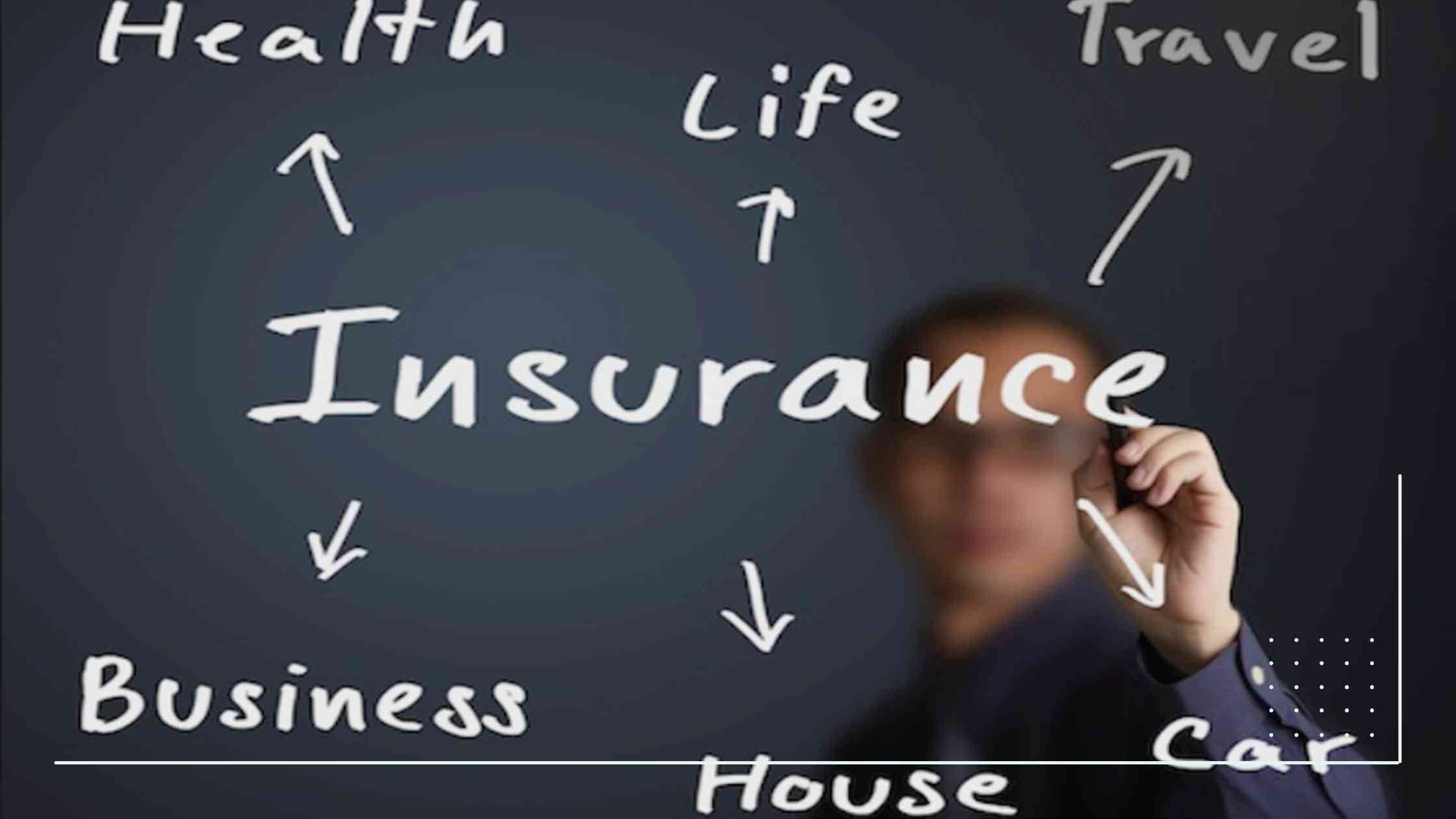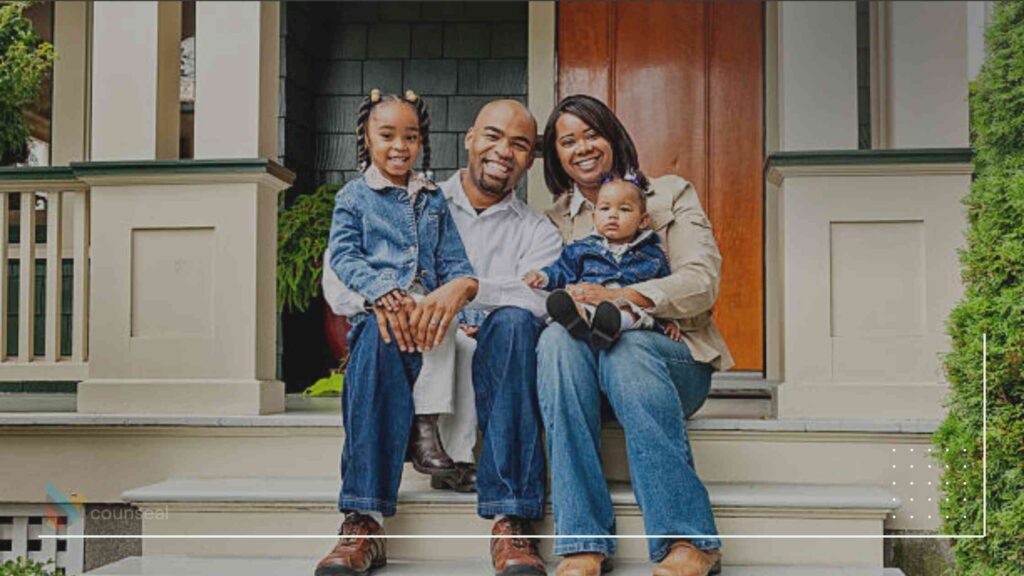Navigating Nigeria’s Insurance Landscape: A Review of the Best Insurance Companies

by Counseal Team
Updated February 20, 2024

The mere word ‘insurance’ might sound like a dull topic to most Nigerians, but in reality, it’s a dynamic industry that plays a vital role in our daily lives. Insurance is a tool that shields us from financial loss and unexpected hardship.
From protecting our health to safeguarding our homes, insurance provides a safety net for Nigerians.
But with a multitude of insurance companies in Nigeria, how do you know which one to trust with your hard-earned Naira?
Insurance in Nigeria: A Snapshot
Despite its importance, insurance penetration in Nigeria remains low. A survey by the Nigerian Insurers Association (NIA) revealed that only 1% of the Nigerian population holds any form of insurance policy.
This low level of insurance awareness is a wake-up call, highlighting the urgent need for Nigerians to understand and appreciate the value of insurance.
So, let’s dive into the dynamic world of insurance and explore some of the top insurance policies and the companies that offer them in Nigeria.
Understanding Life Insurance in Nigeria

Let’s dive right in and discuss what life insurance is all about.
Essentially, life insurance is a contract between an insurance policyholder and an insurer. This contract stipulates that the insurer will pay a designated beneficiary a sum of money in exchange for a premium upon the death of the insured person.
Sounds pretty straightforward, right? But, what are the benefits and drawbacks that come with it?
The Benefits and Drawbacks of Life Insurance
One of the primary benefits of life insurance is the financial security it provides. In the event of your untimely demise, your loved ones won’t be left in the lurch. They’ll receive a payout that can help cover everything from funeral costs to daily living expenses. Plus, life insurance payouts are generally exempt from income tax, so your beneficiaries get the full amount.
However, life insurance isn’t without its drawbacks. Firstly, it can be quite expensive, especially if you’re in poor health or have a risky occupation. Secondly, it’s not an investment. Unlike stocks or real estate, you’re not likely to see any return on your money unless you pass away during the term of the policy.
Life Insurance Companies in Nigeria
Now that we’ve covered the basics, let’s have a look at some of the top life insurance companies in Nigeria and what they offer.
AIICO: This is one of the most reliable insurance companies in the country. With a reputation for being responsive and efficient, AIICO offers a range of life insurance plans to suit different needs.
FBN: If you’re after flexibility, FBN might be the right choice for you. They offer customized life insurance plans that are secure and designed to meet your specific needs.
AXA Mansard: Known for their innovative approach, AXA Mansard offers personalized life insurance plans that are convenient and easy to understand.
Choosing the Best Life Insurance Plan
So, how do you pick the best life insurance plan for your needs and budget? Here are a few tips:
- Identify your needs: Everyone’s situation is unique. You need to identify your financial obligations, the standard of living you want to maintain for your dependents, and your budget.
- Compare policies: Don’t just settle for the first policy you come across. Take the time to compare the features, benefits, and costs of different policies.
- Consider your health: Certain health conditions can impact your premium rates. If you have a pre-existing condition, you may need to look for a provider who specializes in high-risk coverage.
- Seek professional advice: A financial advisor or insurance broker can provide valuable insight and help you navigate the complex world of life insurance.
Remember, life insurance is a big decision and not one to be taken lightly. Do your research, understand your needs, and choose wisely. After all, it’s your life (insurance) we’re talking about!
Understanding Health Insurance in Nigeria

Before diving into the nitty-gritty of health insurance, let’s first break down what it means. Health insurance, in a nutshell, is a type of insurance that pays for medical and surgical expenses incurred by the insured. It’s sort of like your financial bodyguard when it comes to health-related expenses.
Now, how does it operate? Simple. You pay a premium (that’s insurance lingo for the cost of your insurance policy), and in return, the insurance company agrees to pay a portion of your medical costs.
In Nigeria, we have the National Health Insurance Scheme (NHIS), a body established to ensure that every Nigerian has access to good health care services.
NHIS: Eligibility, Enrollment, and Benefits
NHIS is open to all Nigerians, irrespective of age, gender, or socioeconomic status. Enrolling in the scheme is as easy as ABC. All you need is to provide your personal details, select a health care provider of your choice, and voila, you’re covered.
The benefits? They’re almost endless. From outpatient care, maternity care, preventive care, to specialist consultation – the list goes on. But, like all good things, NHIS also has its challenges.
The Challenges and Limitations of NHIS
Despite its noble intentions, NHIS has its fair share of stumbling blocks. Some Nigerians are still unaware of its existence, while others complain about the quality of services provided.
From my personal experiences and discussions with others, there’s a consensus that NHIS needs to widen its coverage. Currently, it does not cover conditions like cancer and heart diseases, which are some of the leading causes of death in Nigeria.
Improving and Expanding NHIS
So, how can we improve and expand NHIS? For starters, more public awareness is needed. People can’t benefit from a scheme they know nothing about.
Also, expanding the range of diseases covered and improving the quality of healthcare services will go a long way in making the scheme more effective.
Health Insurance Companies in Nigeria
Apart from NHIS, there are other health insurance providers that offer comprehensive and quality services. Let’s take a look at some of them.
- Hygeia: Offers a variety of health plans that are comprehensive, quality, and accessible.
- RelianceHMO: Known for its affordable and flexible plans, it’s a digital-savvy provider, making access to healthcare services easier.
- Cigna: A global insurance company that provides comprehensive health plans. Trusted by millions around the world, it’s a good option for those seeking international coverage.
Choosing a Health Insurance Provider
When choosing a health insurance provider, there are several factors to consider. Cost, coverage, flexibility, and quality of services should be at the top of your checklist.
It’s important to remember that the cheapest plan isn’t always the best. Look for a plan that offers a good balance of cost and benefits. And most importantly, choose a provider that is responsive and has a good reputation.
In conclusion, health insurance is an essential service that every Nigerian should have. It provides a safety net against high medical costs and ensures that everyone has access to quality healthcare. By improving and expanding NHIS and exploring other health insurance providers, Nigerians can be better protected against health risks.
Understanding Car Insurance in Nigeria

If you’re familiar with the concept of insurance, you’d agree it’s a kind of protective financial shield against unexpected circumstances. But how does car insurance specifically fit into this picture, and how is it different from other types of insurance? Let’s dive in.
Unlike health or life insurance that cover personal risks, car insurance is specifically designed to cover risks associated with your vehicle. It’s like a safety net that absorbs the financial blow you might face due to car-related mishaps, theft, or damages.
Advantages and Disadvantages of Car Insurance
Like any financial decision, car insurance comes with its pros and cons. On the plus side, it offers financial protection against unexpected car-related costs, peace of mind knowing you’re covered, and it’s often a legal requirement for car owners.
On the flip side, car insurance can be expensive, especially for new or young drivers. It can also be time-consuming when it comes to claims processes, and let’s not forget, it’s another bill to pay.
Top Car Insurance Companies in Nigeria
If you’re in Nigeria and considering car insurance, here are three companies worth checking out:
- Leadway Assurance Company: Known for their experience, diversity, and supportive customer service, Leadway offers comprehensive motor insurance that covers accidental damage, fire, theft, and third-party liabilities.
- Cornerstone Insurance PLC: Professional, efficient, and friendly – that’s Cornerstone for you. They offer auto insurance that covers theft, accidental damage, and third-party liabilities.
- NEM Insurance PLC: If you’re after fast, easy, and reliable service, NEM Insurance is a good bet. Their motor insurance covers accidental damages, fire and theft, and legal liabilities to third parties.
How to Choose the Best Car Insurance Plan
Choosing the best car insurance plan depends largely on your personal situation and goals. Here are a few tips to guide you:
- Assess your needs: What kind of coverage do you need? Comprehensive, third-party, theft? The choice is yours.
- Compare quotes: Get quotes from numerous providers, including those mentioned earlier. Look beyond the price and consider the coverage, deductibles, and customer service.
- Read reviews: What are other customers saying about their experiences with the company?
- Consider your budget: Car insurance is essential, but it shouldn’t break the bank. Find a balance between adequate coverage and affordability.
Remember, car insurance isn’t a luxury, it’s a necessity. With the right plan, you can cruise the Nigerian roads with confidence, knowing you’re covered.
Understanding Home Insurance in Nigeria

Home insurance, have you heard of it? It’s not as popular in Nigeria as, say, car insurance. But that doesn’t mean it’s any less important. Home insurance is a type of property insurance that protects your home and possessions against unexpected events like fires, theft, or natural disasters. Think of it as a safety net for your most valuable asset – your home.
So, why might it be useful for some Nigerians? Well, imagine having peace of mind knowing that should the unexpected happen, you’re covered. That’s the power of home insurance. Unlike health or car insurance, which are primarily focused on personal or vehicular protection, home insurance offers an umbrella of coverage for your home and its contents. It’s a unique type of insurance that provides a different kind of security.
A Peek at Nigeria’s Home Insurance Landscape
In Nigeria, several key players dominate the home insurance market. Let’s take a closer look at three of them: Custodian, Mutual Benefits, and Allianz.
1. Custodian First up, Custodian. They’re known for their flexible, customised, and secure home insurance plans. They offer comprehensive coverage that can be tailored to your specific needs. Whether you’re insuring a mansion in Banana Island or a bungalow in Surulere, Custodian has got you covered.
2. Mutual Benefits Next, we have Mutual Benefits. They’re all about being affordable, comprehensive, and caring. Their home insurance plans are designed to fit every budget without compromising on coverage. Plus, they pride themselves on their customer-focused approach.
3. Allianz Finally, Allianz. With years of experience under their belt, they offer diverse and supportive home insurance services. They have a broad range of plans to choose from, offering coverage for everything from fire damage to theft. What sets them apart is their commitment to supporting their customers every step of the way.
Smart Ways to Save on Home Insurance
Now, you’re probably thinking, “Sounds great, but what’s it going to cost me?” Well, I’m glad you asked. There are several ways you can save money and get the best deal on home insurance in Nigeria.
First, shop around. Don’t just settle for the first quote you get. Compare rates from different companies to ensure you’re getting the best deal.
Second, consider bundling your insurance. If you already have car or health insurance, see if your provider offers a discount for bundling your policies.
Lastly, maintain a good credit score. Yes, your credit score matters even when it comes to insurance. Many insurance companies offer lower rates to customers with good credit.
So, there you have it. A quick guide to understanding home insurance in Nigeria. Whether you’re a homeowner or a renter, having home insurance can provide that extra layer of security for your peace of mind. Now, isn’t that worth considering?
Understanding Business Insurance and Its Importance

Imagine you’re running a thriving business, and then out of the blue, an unfortunate event happens. It could be a fire, theft, or a liability claim against your enterprise. What do you do? How do you recover? This is where business insurance comes in handy.
Business insurance, in a nutshell, is a safety net that protects your business from unforeseen risks. It’s a contract between your business and an insurance company, where you pay a premium, and in return, the insurer compensates you in case of a loss. It’s like having a peace-of-mind subscription for your business.
Common Types of Business Insurance in Nigeria
Several types of business insurance policies are available in Nigeria, catering to different kinds of risks. Some of the most common ones include:
- Fire Insurance: This covers damage or loss to your property due to fire, lightning or explosion.
- Burglary Insurance: This insures your business against loss or damage resulting from burglary or theft.
- Liability Insurance: This protects your business against claims for damages to a third party’s property or injury to a third party within your premises or due to your business operations.
Spotlight on Nigerian Business Insurance Companies
There’s an array of business insurance companies operating in Nigeria, providing different products to cater to diverse business needs. Let’s take a closer look at some of them:
- Industrial and General Insurance: Known for their innovative, diverse, and responsive insurance solutions, they offer a range of products from fire and special perils insurance to public liability insurance.
- African Alliance: With their reliable, reputable, and professional services, African Alliance offers a broad spectrum of insurance products, including goods-in-transit insurance and employers’ liability insurance.
- Aetna: A global player with a comprehensive range of trusted insurance products, Aetna offers Nigerian businesses access to international quality insurance solutions.
Choosing the Right Business Insurance Provider: Factors to Consider
Finding the right insurance provider and policy for your business can be a daunting task. Here are some key factors to keep in mind:
- Reputation: Check out the insurance company’s reputation. You can do this by looking at their customer reviews and ratings.
- Financial Stability: Look into the company’s financial health. An insurance company should have enough financial resources to meet their policyholder’s claims.
- Coverage: Determine if the insurance company provides the type of coverage that suits your business needs.
- Price: Compare the premiums of different insurance companies. Remember, the cheapest isn’t always the best.
In conclusion, business insurance is an essential investment for any serious entrepreneur in Nigeria. It’s not just about protecting your assets, but it’s about ensuring the continuity of your business. So, don’t leave it to chance, get insured!
While the Nigerian insurance market may seem complex, knowing your options can make all the difference. Remember, the right insurance company for you is one that meets your specific needs and gives you peace of mind. So, take your time to research, compare, and make informed decisions.
What has been your experience with insurance companies in Nigeria? I’d love to hear your thoughts. So, drop a comment below or reach out to us at Counseal. Let’s keep the conversation going!
Frequently Asked Questions
What is insurance and why do I need it?
Insurance is a way of protecting yourself and your assets from financial losses due to unexpected events such a s accidents, illnesses, natural disasters, lawsuits, etc.
Insurance can help you pay for the costs of repairing or replacing your property, covering your medical bills, compensating your beneficiaries, or defending yourself in court.
Insurance is important because it can give you peace of mind, security, and confidence in facing life’s uncertainties.
What are the main types of insurance available in Nigeria?
There are five main types of insurance available in Nigeria: life, health, car, home, and business. Life insurance is a type of insurance that pays a sum of money to your beneficiaries when you die. Health insurance is a type of insurance that covers the cost of medical expenses for you or your dependents. Car insurance is a type of insurance that covers the damage or liability caused by your vehicle. Home insurance is a type of insurance that covers the damage or loss of your house and its contents. Business insurance is a type of insurance that covers the risks and liabilities associated with your business activities.
How do I choose the best insurance company in Nigeria?
There is no one-size-fits-all answer to this question, as different insurance companies may offer different products, services, prices, and customer satisfaction. However, some general factors that you can consider when choosing an insurance company in Nigeria are:
- The type of insurance that suits your needs and budget
- The reputation and reliability of the company
- The coverage and exclusions of the policy
- The customer reviews and feedback of the company
- The ease of enrollment and claims process
What are some examples of life insurance companies in Nigeria and what do they offer?
Some examples of life insurance companies in Nigeria are AIICO, FBN, and AXA Mansard. AIICO is one of the largest and oldest life insurance companies in Nigeria, offering a range of products such as term, whole, endowment, annuity, and group life insurance.
FBN is a leading life insurance company in Nigeria, offering flexible and customized products such as savings, protection, education, and retirement plans. AXA Mansard is a subsidiary of AXA, a global leader in insurance, offering innovative and personalized products such as life, health, travel, and investment plans.
What are the benefits and drawbacks of health insurance in Nigeria?
Health insurance is a type of insurance that covers the cost of medical expenses for you or your dependents. Some of the benefits of health insurance are:
- It can help you pay for preventive care, routine check-ups, prescriptions, hospitalization, surgery, and more
- It can improve your access to quality health care and reduce your out-of-pocket costs
- It can protect you from unexpected and high medical bills and promote your overall health and well-being
- Some of the drawbacks of health insurance are:
- It can be expensive and may not be affordable for everyone
- It may have limited coverage and exclusions for some diseases and treatments
- It may have restrictions and limitations on the choice of providers and facilities
What are the advantages and disadvantages of car insurance in Nigeria?
Car insurance is a type of insurance that covers the damage or liability caused by your vehicle. Some of the advantages of car insurance are:
- It can help you pay for the repair or replacement of your car in case of an accident, theft, fire, or vandalism
- It can cover your legal liability for bodily injury or property damage to third parties
- It can provide you with additional benefits such as roadside assistance, towing, rental car, etc.
- Some of the disadvantages of car insurance are:
- It can be costly and may increase depending on your driving record, car model, location, etc.
- It may have deductibles, co-payments, and out-of-pocket costs that you have to pay before the insurance kicks in
- It may have exclusions and limitations on the coverage and benefits of the policy
What is home insurance and who needs it?
Home insurance is a type of insurance that covers the damage or loss of your house and its contents. Home insurance is useful for homeowners who want to protect their property and belongings from risks such as fire, flood, storm, burglary, etc. Home insurance can provide you with:
- Coverage for the structure and contents of your house
- Liability protection for injuries or damages to third parties on your premises
- Additional living expenses if your house becomes uninhabitable due to a covered event
- Optional coverage for valuables, personal property, or special items





